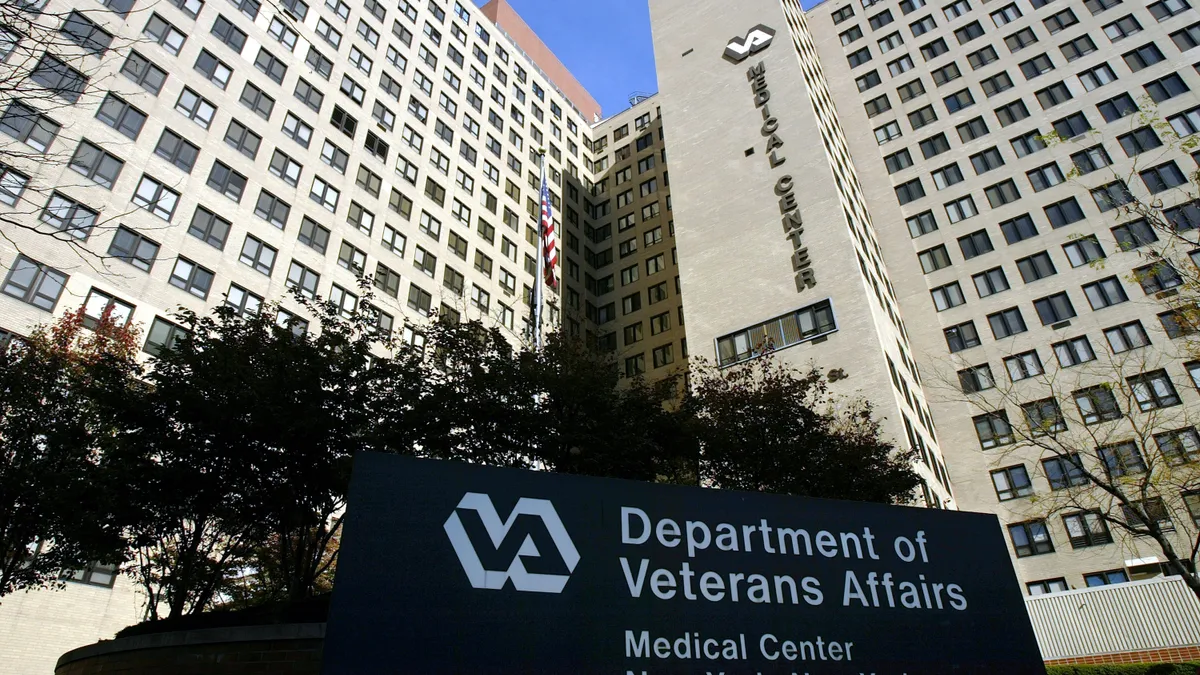Dive Brief:
- The Food and Drug Administration has partnered with the healthcare wing of the Department of Veterans Affairs to help accelerate American medical device innovation.
- Up to 12 FDA staff will work out of Veteran Affairs’ VA Ventures Innovation Institute, providing regulatory input on the development of tools for testing the safety and effectiveness of devices.
- The goal is to provide standardized, off-the-shelf tests that can streamline the regulatory process and reduce time to market by making product development more predictable.
Dive Insight:
The FDA and VA Ventures, an arm of the Department of Veterans Affairs, have entered into a memorandum of understanding that “provides a framework for collaboration intended to facilitate regulatory and basic science innovation surrounding the medical device development pathway with respect to emerging technologies.”
Together, the FDA and its collaborators will place “special emphasis” on interoperability and work on “metrics, training, protocols, and programs for medical products that utilize emerging technologies, including medical products that are manufactured close to the patient at the ‘point of care.’”
The FDA called out “5G, immersive technologies, machine learning and artificial intelligence, additive manufacturing and wearable technologies” as examples of emerging technologies that may be targeted in the collaboration. The collaborators plan to publish separate implementing agreements that set out specific projects and activities in the future.
Initially, the team will work on interoperable systems that can exchange health information automatically for the diagnosis and treatment of patients. The focus reflects the fact that more medical devices, such as ventilators and fluid resuscitation systems, will be controlled autonomously based on sensor data. The automation means that “ensuring appropriate function” of the sensor and system is vital, the FDA said.
VA Ventures describes itself as an “innovation incubator” letting the VA health care system work with academic institutions, startups and the healthcare industry to develop “sustainable, high-impact solutions” for veterans.
Through the projects, the collaborators “intend to jointly develop a portfolio of regulatory science tools, training, and research outcomes that ensure veterans and the American public have access to the most innovative medical solutions and technologies to support their care.”
To support the development of the regulatory science tools for emerging technologies, the FDA will send up to four full-time equivalent staff to work at VA Ventures in Seattle in its 2023 fiscal year. The FDA has the opportunity to expand to eight staff the following year. The agency will also “provide specific direction on regulatory science needs in the regulatory space” and make the tools available publicly.











